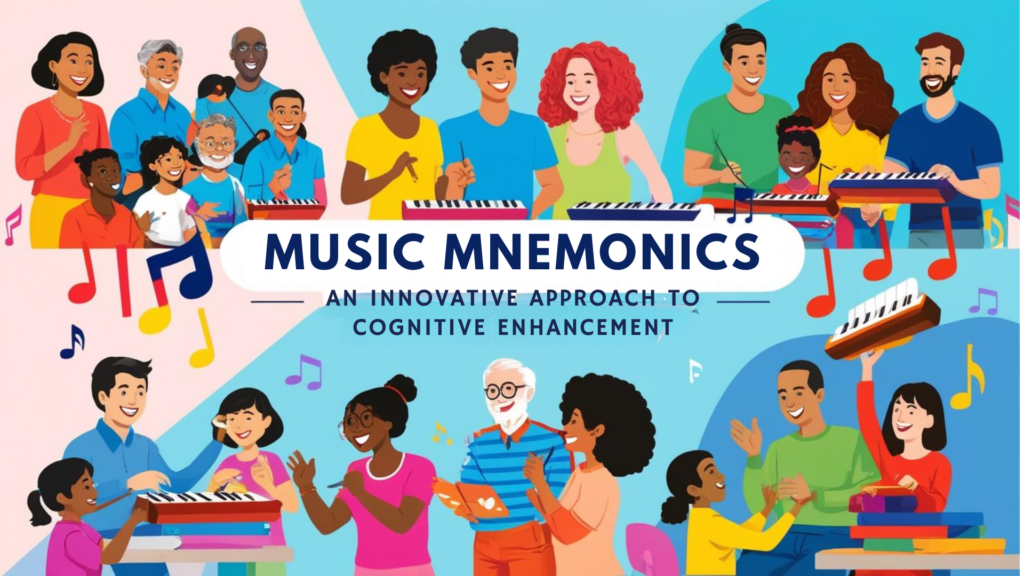Boost Brain Plasticity in Multiple Sclerosis with Music Mnemonics
Table of Contents
Multiple Sclerosis (MS) is a chronic illness characterized by disruption in nerve communication between the brain and the rest of the body. For those living with MS, the journey is often one that involves exploring various methods to improve cognitive functioning and overall quality of life. One promising avenue gaining attention is the use of music mnemonics as a tool to enhance verbal memory and stimulate brain plasticity.
Understanding Multiple Sclerosis and Cognitive Challenges
Multiple Sclerosis is an autoimmune disease affecting the central nervous system. The disease can lead to diverse symptoms including physical disability, visual disturbances, and difficulties in coordination and balance. Among these, cognitive challenges, particularly issues with memory and executive function, are common and can notably impact daily life and work productivity.
The Role of Brain Plasticity
Brain plasticity, or the brain’s ability to reorganize itself by forming new neural connections, plays a critical role in adapting to new situations or recovering from injuries. Cognitive decline in MS patients often stems from impaired brain plasticity. Hence, interventions aimed at enhancing brain plasticity could potentially ameliorate these deficits.
Music Mnemonics: An Innovative Approach to Cognitive Enhancement
Music mnemonics leverages the power of music to enhance learning and memory. This approach embeds information in a musical format, making it easier to recall. The familiarity and structure of music aid in encoding and retrieving verbal information, thus providing significant cognitive benefits.
Why Music Mnemonics?
- Engages Multiple Senses: By combining auditory and sometimes visual elements, music mnemonics can capture attention more effectively than conventional learning methods.
- Emotional Connection: Music often elicits emotional responses, creating stronger memory connections.
- Enhances Neural Activation: Listening to music activates a broad network of brain regions, potentially stimulating neuroplasticity.
Research Insights: Music Mnemonics in MS
Recent research published in Frontiers highlights how individuals with MS can leverage music mnemonics to enhance verbal memory and induce related brain plasticity changes. The study utilized a series of mnemonic devices infused with music as part of cognitive rehabilitation programs tailored to MS patients.
Key Findings
- Participants exposed to music mnemonics showed marked improvement in verbal memory tasks.
- Functional MRI scans indicated that music mnemonics engaged auditory and memory-related brain regions more vigorously than non-musical interventions.
These findings suggest that music mnemonics not only aid in memory recall but also facilitate structural changes within the brain, highlighting their potential as a non-invasive and enjoyable therapeutic tool.
Implementing Music Mnemonics in Daily Life
Integrating music mnemonics into everyday routines can be both simple and highly effective. Here’s how individuals with MS can begin:

Practical Tips
- Start Simple: Use familiar tunes to memorize lists or factual information. Repetition is key to effectiveness.
- Make it Personal: Customize mnemonics that hold personal meaning, which will aid the emotional encoding of memory.
- Utilize Technology: Leverage music apps to record mnemonic songs and access them on the go.
Beyond Cognitive Benefits: Enhancing Quality of Life
While the primary aim is to enhance verbal memory, the incorporation of music in learning provides broader benefits:
- Stress Reduction: Music is a powerful tool for relaxation, and integrating it into learning can reduce stress and promote a more positive learning experience.
- Social Engagement: Group music sessions or shared playlists can foster social connections and create a supportive community environment.
- Motivation and Enjoyment: The enjoyment derived from music can significantly boost motivation, thereby enhancing consistency in rehabilitation efforts.
Conclusion
The intersection of cognitive neuroscience and music shows promise in addressing the cognitive challenges presented by multiple sclerosis. Music mnemonics offer a delightful yet potent means to unlock the brain’s potential, promoting both cognitive health and an enhanced quality of life for individuals with MS.
As research continues to explore the depths of brain plasticity, incorporating music mnemonics into therapeutic practices promises a harmonious blend of science and art, enriching the lives of those striving to overcome the challenges of MS.
Want to explore more about how your memory, brain, and learning work?
Follow us on Social Media



